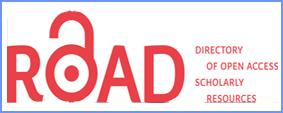FILSAFAT ILMU SEBAGAI KOMPAS BAGI PENGEMBANGAN ILMU PENGETAHUAN DI MASA DEPAN
Abstract
Artikel ini menelaah secara kritis perkembangan ilmu pengetahuan dan implikasi yang dihasilkannya kemudian. Tujuannya untuk melihat dimensi lain dari perkembangan sains, selain hingar-bingar yang telah ditunjukkan selama ini. Adapun perspektif yang digunakan adalah filsafat ilmu. Oleh sebab itu, melalui perspektif tersebut, studi ini berusaha merefleksi kembali landasan metodologis sains (metode ilmiah), temuan-temuannya serta dampaknya bagi manusia dan alam saat ini. Sebagai hasilnya: (1) metode ilmiah sebagai pondasi sains cenderung mengobjektivasi realitas pada satu pihak, dan mengabaikan kehendak dan kepentingan ilmuawan pada pihak lain; (2) hal ini berimplikasi pada cara padang yang menempatkan alam secara terpisah dengan dengan manusia, padahal alam adalah ruang hidup bagi manusia itu sendiri; (3) sains dalam perkembanganya cenderung menjadi ideologi sehingga bersifat insuler dan tertutup. Adapun teknologi sebagai produknya menjadi barang komoditas yang berorientasi pada pasar.
Abstract:
This article critically examines the development of science and its implications. The aim is to see other dimensions of scientific development apart from the noise that has been shown so far. The perspective used is the philosophy of science. Therefore, through this perspective, the study reflects on the methodological foundations of science (scientific method), its findings and their impact on humans and nature today. As a result: (1) the scientific method as the foundation of science tends to objectify reality on the one hand and ignores the will and interests of scientists on the other; (2) this has implications for the way the desert, which places nature separately from humans, even though nature is a living space for humans themselves; (3) science and its development tends to become ideology so that it is insular and closed. As for technology as a product, it becomes a market-oriented commodity.
Downloads
References
Bagus, Lorens. Kamus Filsafat. Jakarta: Gramedia, 2005.
Bahm, A.J. What Is Science? 1st ed. Albuquerque: World Books, 1980.
Bakker, Anton\, and Achmad Charris Zubair. Metodologi Penelitian Filsafat. II. Yogyakarta: Kanisius, 1992.
Chalmers, A.F. Apa Itu Yang Dinamakan Ilmu? Jakarta: Hasta Mitra, 1983.
Habermas, Jurgen. “Science and Technologi as ‘Ideology’ (1968).” In Habermas Handbook, 256–270. Colombia: Columbia University Press, 20188.
Hadi, P. Hardono. Epistemologi: Filsafat Pengetahuan. 1st ed. Yogyakarta: Kanisius, 1994.
Heriyanto, Husein. Paradigma Holistik: Dialog Filsafat, Sains Dan Kehidupan Menurut Sadra Dan Whitehead. 1st ed. Bandung: Teraju, 2003.
Heidegger, Martin. Being and Time. Albany: State University of New York Press, 1996.
Lubis, Akhyar Yusuf. Paul Feyeraben: Penggagas Antimetode. Bandung: Teraju, 2003.
Van Peursen, C.A. Susunan Ilmu Pengetahuan: Sebuah Pengantar Ilmu Filsafat. Jakarta: PT. Gramedia, 1985.
Wibisono, Koento. Sejarah Pengembangan Ilmu Pengetahuan, Teknologi Dan Seni: Suatu Tinjauan Dari Perspektif Filsafat. 1. Yogyakarta, 2013.




.png)








